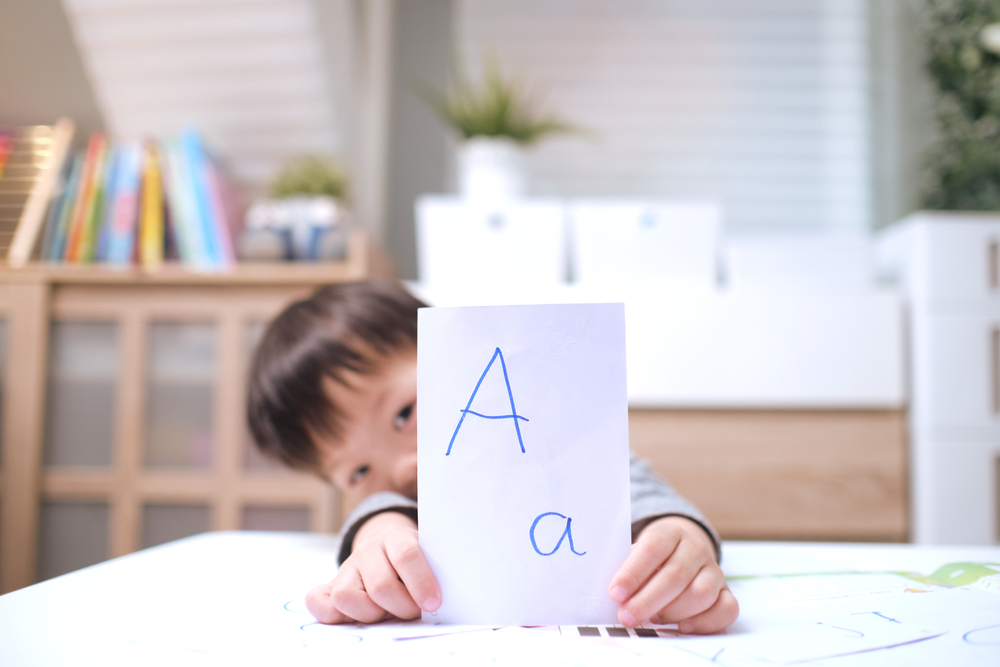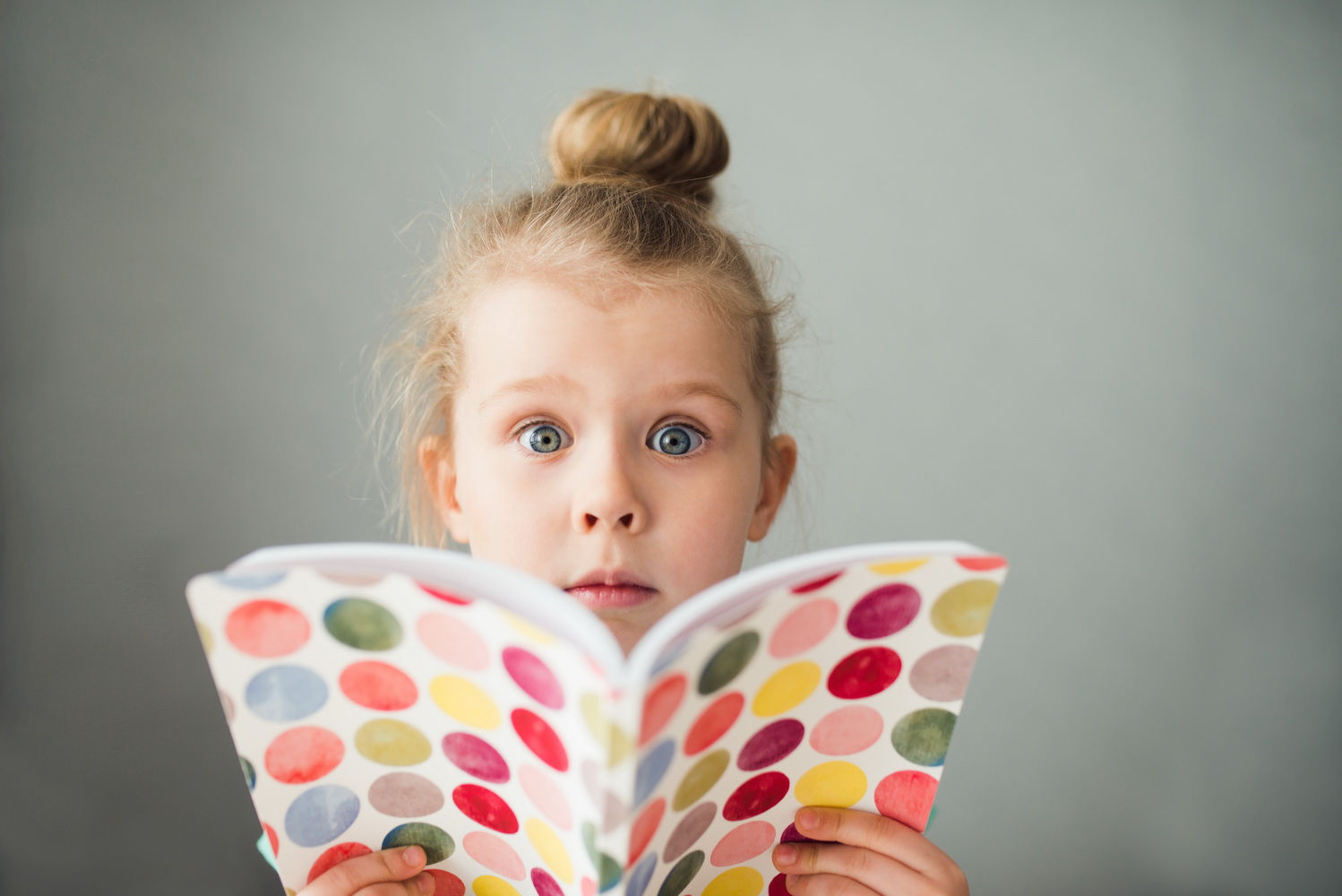Sequencing Skills Reading Worksheets for Ages 3-6
7 filtered results
-
From - To
Enhance your child's reading comprehension and critical thinking with our engaging Sequencing Skills Reading Worksheets designed for ages 3-6. These worksheets provide fun and interactive activities that help young learners understand the order of events in stories. By practicing sequencing, children will improve their narrative skills and develop a better grasp of storytelling elements. Our thoughtfully crafted worksheets include colorful illustrations and age-appropriate challenges, making learning enjoyable. Perfect for preschool and kindergarten classrooms or at-home activities, these resources support early literacy development while fostering essential cognitive skills. Visit us now to explore your options and ignite a love for reading in your child!
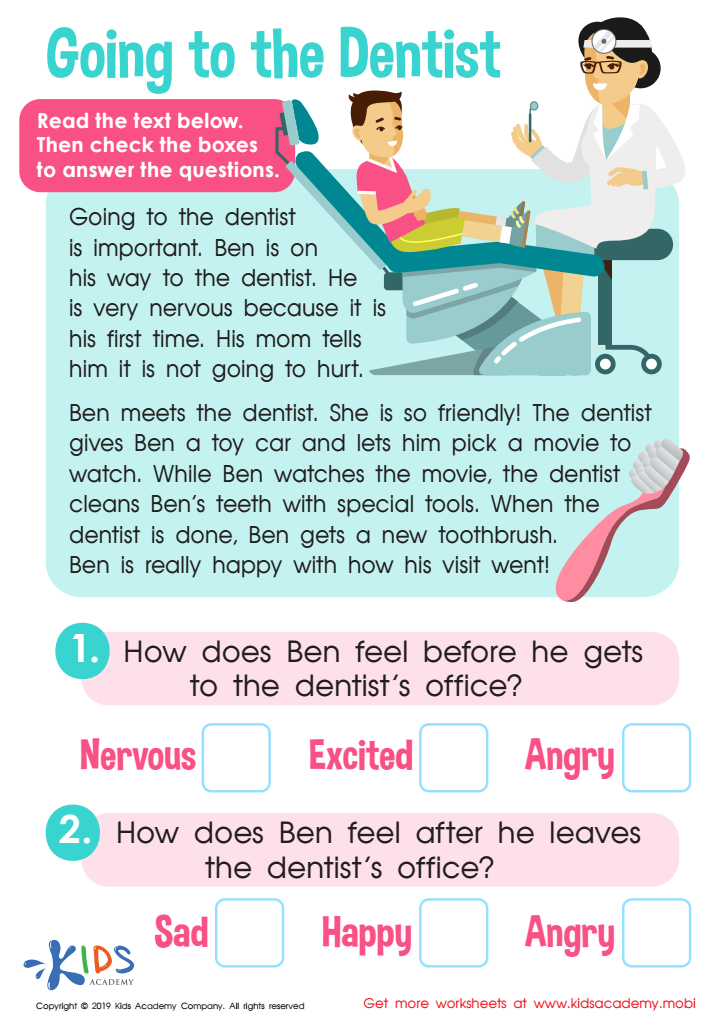

Going to the Dentist Worksheet
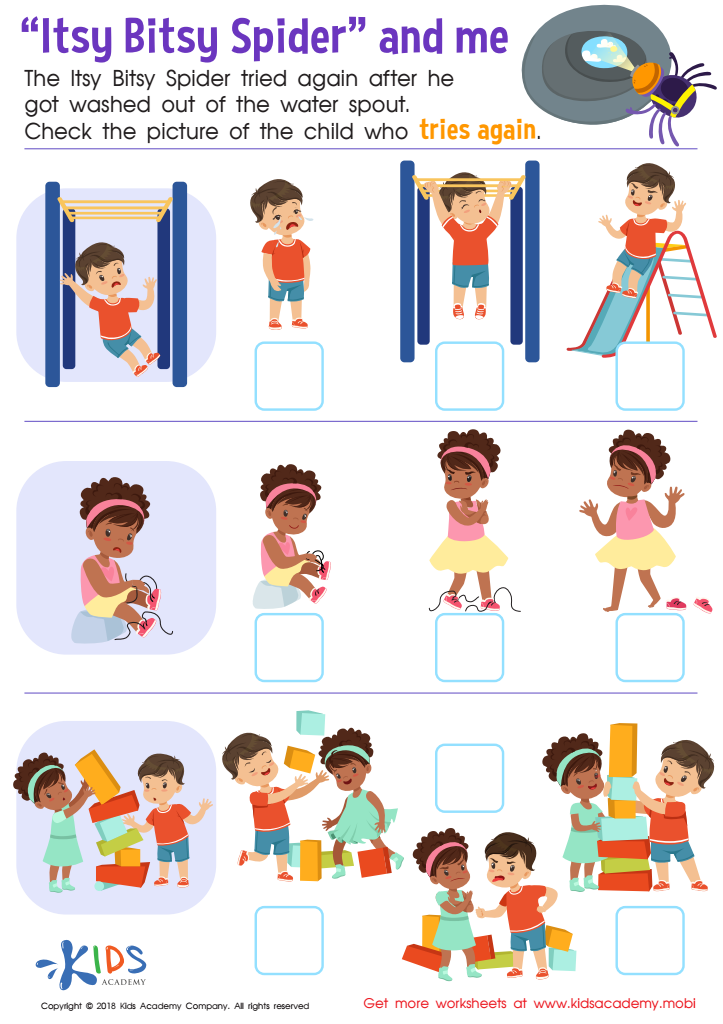

Itsy Bitsy Spider and Me Worksheet
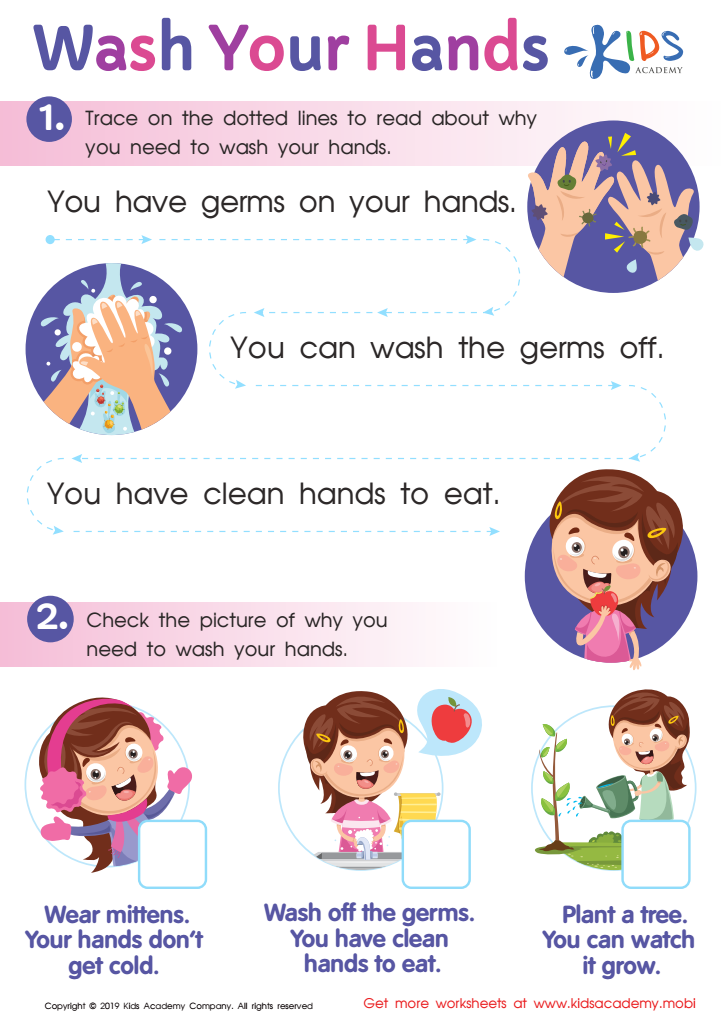

Wash Your Hands Worksheet
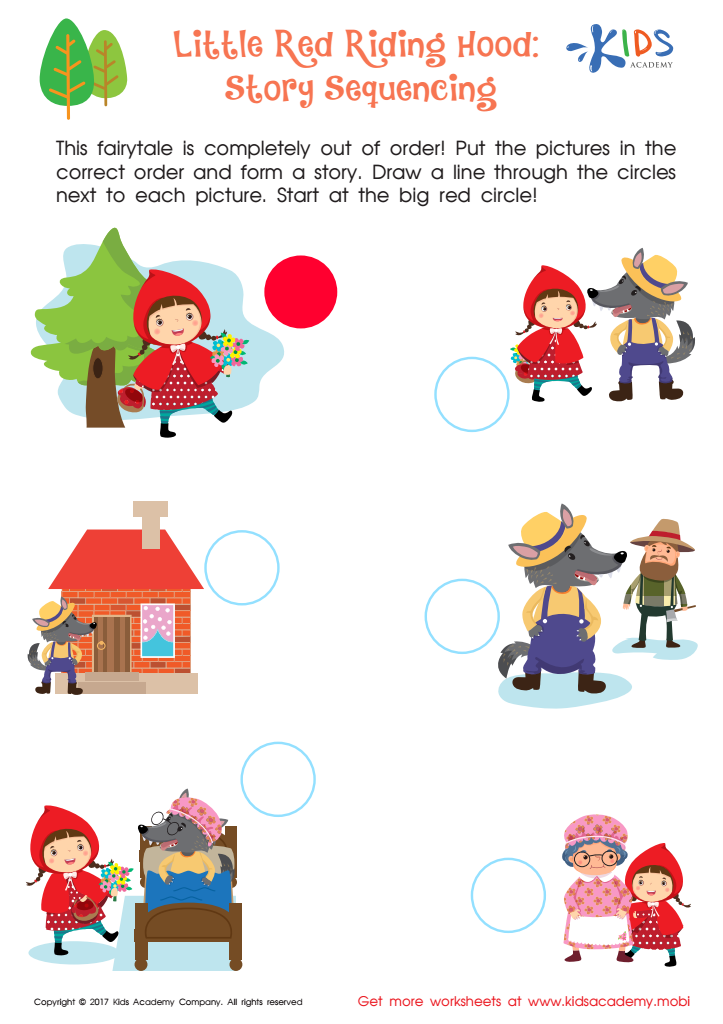

Story Sequencing Printable
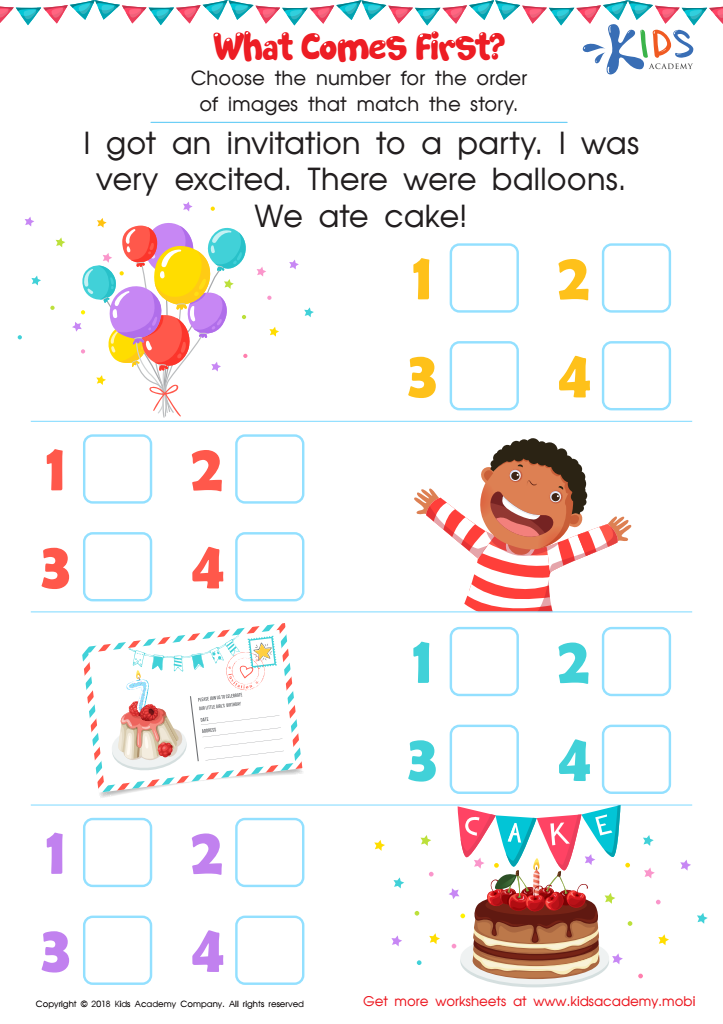

What Comes First Worksheet
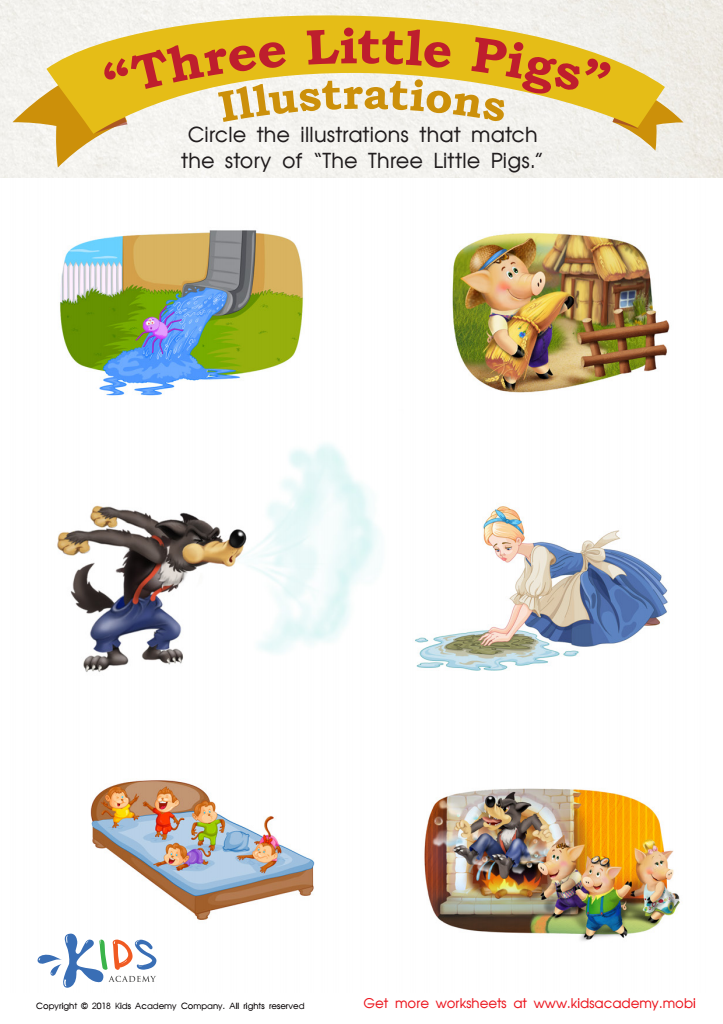

Three Little Pigs: Illustrations Worksheet
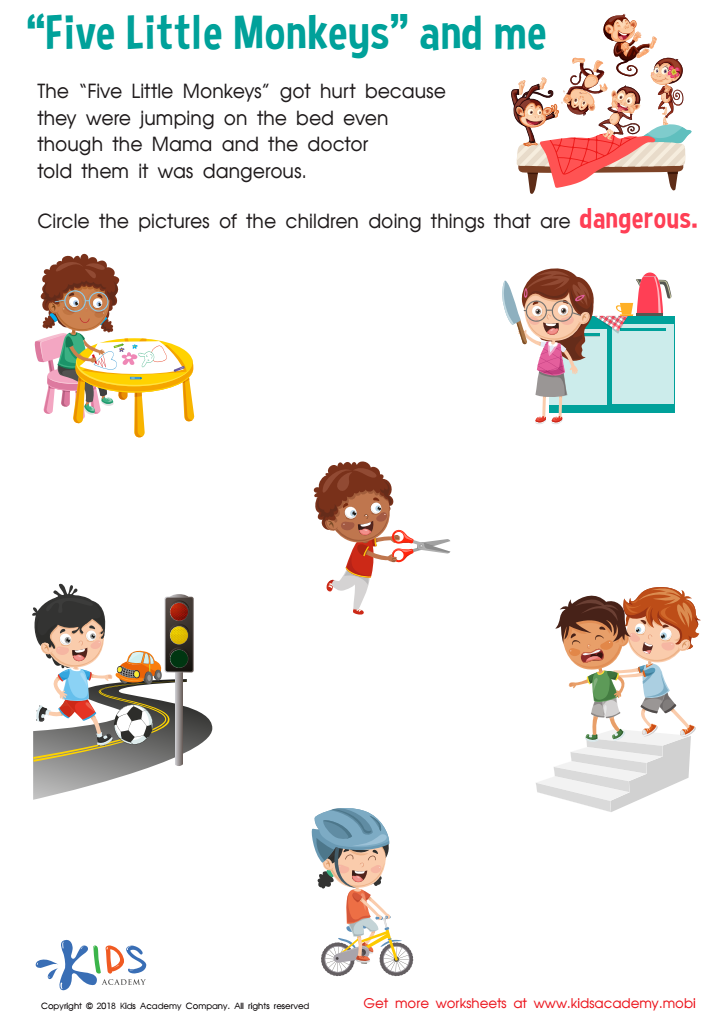

Five Little Monkeys and Me Worksheet
Sequencing skills are crucial for children ages 3-6 as they lay the foundation for comprehension and storytelling. Understanding the order of events enhances a child's ability to follow narrative structures, making them more adept at both reading and writing. When children grasp sequencing, they can better anticipate what happens next in a story, improving their engagement and motivation to read.
Parents and teachers should care about sequencing skills because these abilities contribute significantly to a child’s overall literacy development. By mastering sequencing, children enhance critical thinking and problem-solving skills, as they learn to identify causes and effects within stories. This skill also supports memory retention; recalling events in order deepens understanding.
Engaging activities that boost sequencing, such as retelling stories, using picture cards, or sequencing everyday routines, can be easily integrated into both home and classroom settings. By fostering these skills at a young age, parents and teachers not only prepare children for more complex reading tasks in the future but also cultivate a lifelong love for literature and learning. In essence, prioritizing sequencing skills fosters a strong foundation for essential cognitive and academic skills, vital for future success in school and beyond.

 Assign to My Students
Assign to My Students





